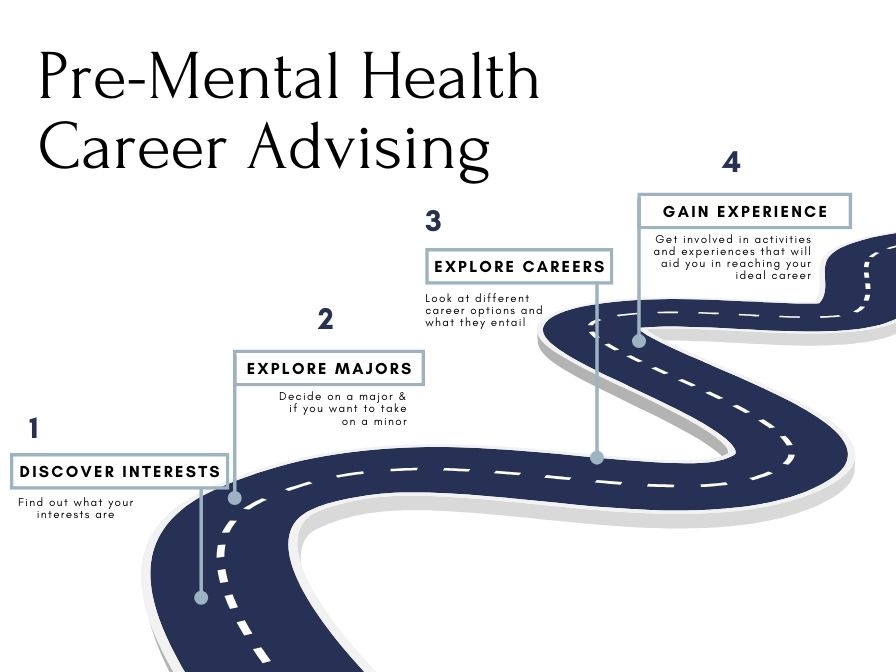General Pre-Mental Health Career Pathway

Selecting a Major
Pre-mental health career is a pre-professional path that students can follow with any college major they choose. Major choice should be determined based on the values and interests you have. The ability to articulate what is meaningful about your program of study is critical for any graduate admissions.
Co-curricular Expectations
| Leadership and Interpersonal Skills | Demonstrating leadership abilities by serving on executive boards of student organizations and showing initiative in the classroom such as for group projects. Students must also have strong interpersonal skills such as communication, warmth, ability to listen well, and work collaboratively. |
| Community Engagement | It is important to have community engagement experiences that demonstrate a sustained commitment to reciprocal learning and contribution over time. This includes volunteer and service experiences. |
| Mental and Behavioral Health Patient Care | Experience working with patients through volunteer or paid positions in mental health care settings will allow students to gain knowledge of the profession. (Of note: most organizations will not offer undergraduates exposure to conducting therapy; internships can focus on either supporting the organization and/or offering non-therapy support and intervention.) |
| Research | For doctoral level programs (PhD, PsyD, MD, EdD, & DSW), research experience is essential. This includes sustained involvement in a research lab whether at USF or other surrounding institutions (such as UCSF and SF VA Hospital) or pursuing honors research projects to demonstrate training, familiarity, and interest in conducting research. |
Becoming a Competitive Applicant
Strong candidates for mental health careers have bachelor’s degrees with A/B+ grades (of any major), excellent letters of recommendation, and well-rounded co-curricular experiences. Some programs may require the GRE and/or subject GRE. Importantly, applicants must be able to rely on past education and professional experiences to clearly express why they want to become mental health care providers.
Experiences beyond the classroom

Get involved in a research lab within your major department

Psi Chi and Psychology Honors program involvement

Work with organizations providing therapeutic services, including hospitals and clinics, mental health tech startups
Resources
-
Many graduate programs offer regular virtual information sessions about admissions. Attending some early in your undergraduate career will be helpful so you know what to expect
-
“Find your Psychology Graduate Program” Database tool by the American Psychological Association